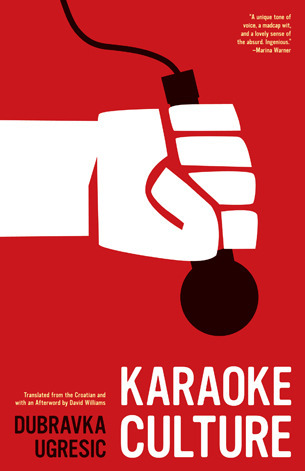
Author

Dubravka Ugrešić was a Yugoslav, Croatian and Dutch writer. She left Croatia in 1993 and was based in Amsterdam since 1996. She described herself as "post-Yugoslav, transnational, or, even more precisely, postnational writer". Dubravka Ugrešić earned her degrees in Comparative Literature, Russian Language and Literature at the University of Zagreb, and worked for twenty years at the Institute for Theory of Literature at Zagreb University, successfully pursuing parallel careers as a writer and a literary scholar. She started writing professionally with screenplays for children’s television programs, as an undergraduate. In 1971 she published her first book for children Mali plamen, which was awarded a prestigious Croatian literary prize for children’s literature. Ugresic published two more books (Filip i Srecica, 1976; Kucni duhovi, 1988), and then gave up writing for children. As a literary scholar Dubravka Ugrešić was particularly interested in Russian avant-garde culture. She was a co-editor of the international scholarly project Pojmovnik ruske avangarde, (A Glossary of the Russian Avangarde) for many years. She rediscovered forgotten Russian writers such as Konstantin Vaginov and Leonid Dobychin, and published a book on Russian contemporary fiction (Nova ruska proza, 1980). She translated fiction into Croatian from Russian (Boris Pilnyak, Gola godina; Daniil Kharms, Nule i nistice), and edited anthologies of both Russian contemporary and avant-garde writing (Pljuska u ruci, 1989). Dubravka Ugrešić was best known in the former Yugoslavia for her fiction, novels and short stories: Poza za prozu, 1978; Stefica Cvek u raljama zivota, 1981; Zivot je bajka, 1983; Forsiranje romana reke, 1988. Her novel Forsiranje romana reke was given the coveted NIN-award for the best novel of the year: Ugrešić was the first woman to receive this honor. Croatian film director Rajko Grlic made a film U raljama zivota (1984) based on Ugrešić’s short novel Stefica Cvek u raljama zivota. Ugrešić co-authored the screenplay, as she did with screenplays for two other movies and a TV drama. In 1991, when the war broke out in the former Yugoslavia, Ugrešić took a firm anti-nationalistic stand and consequently an anti-war stand. She started to write critically about nationalism (both Croatian and Serbian), the stupidity and criminality of war, and soon became a target of the nationalistically charged media, officials, politicians, fellow writers and anonymous citizens. She was proclaimed a “traitor”, a “public enemy” and a “witch” in Croatia, ostracized and exposed to harsh and persistent media harassment. She left her country of origin in 1993. Dubravka Ugrešić continued writing since she began living abroad. She published novels (Muzej bezuvjetne predaje, Ministarstvo boli) and books of essays (Americki fikcionar, Kultura lazi, Zabranjeno citanje, Nikog nema doma). Her books have been translated into more then twenty languages. Dubravka Ugrešić has received several major European literary awards. In 2016, Ugrešić won the Neustadt International Prize for Literature. On March 17th of 2023, one of Europe's most distinctive essayists, Dubravka Ugrešić, died in Amsterdam at the age of 73.